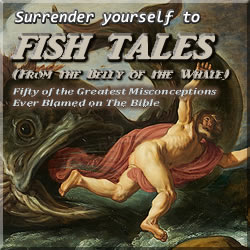Between Certainty and Doubt (Cont’d)
Because There’s More to Life Than the Beauty of the Creation
In the struggle between certainty and doubt, many factors weigh into the fray. On one hand, there are those obvious clues to the presence of God in the Universe, which can’t help but elicit a faith in such a God: The splendor of a desert sunset, the glory of a star-filled night sky, the magnificence of a lush island paradise. There’s the beauty displayed in the animal kingdom: The exotic design of the peacock’s feathers, the breathtaking breach of the ocean’s surface by the humpback whale, the majestic demeanor of a roaring African lion. There’s the beauty in humanity: A wide-eyed infant held securely in a loving mother’s arms, a giggling child as it reaches for a father’s outstretched hand, a lover’s lips on the tear-stained cheek of their beloved.
Unfortunately, though, there’s more to this life than the beauty that adorns the creation. There’s also a tragic side to all that’s good and wholesome in the Universe—a dark mirror, reflecting back a world of sadness and pain, of suffering and disease, of cruelty and death. Worse still, many point to this gross negativity in an attempt to undermine a faith in a God of such a topsy-turvy world. According to them, as long as suffering, disease, and death exist, we don’t need any more proof concerning the utter futility in believing in a God Who would allow such horrors.
Story Continues Below
Says Richard Price—the founder and CEO of Academia.edu—on his podcast In Depth With Academia:
Conquering the Joy of Cynicism and the Death of Beauty: How Your Worldview Shapes the World You Live In is:
To hear Price’s book review of Conquering the Joy of Cynicism and the Death of Beauty, CLICK HERE.
To hear Kent and Zen Garcia talk about correcting biblical misconceptions, from June 23rd, 2021, CLICK BELOW.
Story Continues From Above
For unbelievers, this is one of the oldest arguments they offer in their attempt to undermine the idea of God’s existence. In pointing to suffering, disease, and death, it’s as though they’ve discovered some perverse flaw in God’s creation that He’s too embarrassed to admit He can’t control and is therefore powerless to fix. For believers, this is one of the most painful aspects they face in their attempt to embrace the knowledge of God’s existence. In confronting suffering, disease, and death, they often struggle with the nagging question of how these great enemies can exist in a world created by a loving God.
In confronting this double-edged dilemma, then, it’s my hope to provide an answer, based on the available scriptural evidence, which will satisfy the demands of both parties. But before I do, let’s first establish what we’re looking for here, because the real problem, as I see it, isn’t suffering, disease, and death per se. What we’re talking about is suffering, disease, and death in the context of how they cause us to view God as being aloof by nature and therefore untouched by our predicament. In short, the problem these core issues speak to is the belief that even if God exists, based on our day-to-day experience, He just isn’t as concerned with our pain and suffering as we’d like Him to be. The real problem, then, is the way that suffering, disease, and death undermine our view of God—to unbelievers, as proof of His non-existence; to believers, as an obstacle to faith in His promises.
So, if there’s any truth to this logic, the question we’ll look to answer when we turn to Scripture is: Does suffering, disease, and death negate God’s faithfulness simply by virtue of their existence in our Universe?







